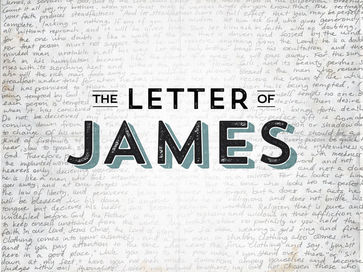 James 1:17-18, 21-22, 27 ‘Pure, unspoilt religion… is this: coming to the help of orphans and widows… and keeping oneself uncontaminated by the world.’ (James 1:27) A few weeks ago a fellow priest was filmed on a programme about pilgrimage while making the following statement; ‘I am not religious’. This was a last-ditch attempt to spark a meaningful conversation about faith with another pilgrim, but the contentious nature of that phrase remained the same – a priest of the established Church of this land said, ‘I am not religious’. The whole incident was rather telling; not so much about the priest speaking, but rather about how society views people who might describe themselves as religious. Being religious can be misunderstood as a bad thing; as an alternative description for either being blinkered, or outright killjoys with fundamentalist tendencies. And if that be the case – most definitely – who would want to be labelled as “religious”? This morning we begin to explore the Letter of James. In writing this letter the Apostle James had in mind a Christian community formed by both long-standing, paid-up, members who needed a little refreshing course, as well as by people who stood on the fringes – sort of half-way in and half-way out of the Church – those who couldn’t quite commit themselves to be “religious” in the Christian sense. Sound familiar? James’ Church is our own Church too, in many respects. Every church community will have both those who attend Sunday services religiously (that word again!) and then forget about God for the other 167 hours of the week, as well as those who would put themselves down as Christians on a census form, but who would come to Mass once or twice a year tops – and, of course, everyone in between. Common to both of these groups is their unwillingness to let the Christian faith actually shape the way in which they live. And to both of these groups James writes a simple set of instructions, a basic guide on how to be a Christian and on what it means to be religious in the way God intended for us to be. The passage we encounter this morning starts from the very beginning saying that it is not good enough for Christians to listen to God’s word and then do nothing about it. James affirms that if this is our attitude towards Christianity and the Church, this just won’t do; in fact, he says, we are deceiving ourselves (Cf. James 1:22). This type of faith will not save us. Instead, he says, as believers we have to do something, we have to be “religious people” – that is, not narrow-minded individuals, but those who act according to God’s instructions and God’s example. But what are these instructions? We find a clear one at verse 27; ‘coming to the help of orphans and widows’. As James puts it, God chose each one of us to be his own beloved child in the Lord Jesus. God made us his children in the waters of Baptism. Consequently, as his children, we are called then to do the same works of God our Father does. In the Scriptures God is described as the defender of those who do not have anyone to plead their causes – represented by orphans, widows, foreigners, and people on the margins (Cf. Psalm 85:5). Then, if God our Father does these things, we are to do the same, just as children learn core behaviours by imitating what their parents do. Christian social action becomes part of the way we worship of God; and the way we treat the least in our society becomes the measure of whether we are “religious” or not. The second instruction we find is to remain ‘uncontaminated by the world.’ As James puts it, our social environment and the wider community we live in are instrumental in forming our characters – and quite often not in a good way. Because of the bad things we experience and the evil that we may endure, over the years, we could change, becoming more cynical and selfish, less disposed to do good, and increasingly blind to the needs of others. But this, James says, should not happen among Christians. God our Father is not influenced or contaminated by the world, nothing can sway him from his generosity and his purpose of doing good… we read, ‘with [God] there is no such thing as alteration, no shadow of a change’ (James 1:17). Therefore we – his children – must make sure that nothing in this world could poison our hearts with bitterness and cynicism. ‘Pure, unspoilt religion… is this: coming to the help of orphans and widows… and keeping oneself uncontaminated by the world.’ Being religious is not a call to be fundamentalists or to be narrow-minded people. In the Christian sense, being religious is a balancing act between worship in church and doing good in the world. It is a loving response to God for choosing us to be his children; the way in which we imitate our heavenly Father, and the way in which we grow into the likeness of God. All this is summed up in one verse from Jesus in Matthew’s gospel; ‘Be perfect as your heavenly Father is perfect’ (Matt 5:48).
0 Comments
|
Archives
June 2020
Categories
All
|
 RSS Feed
RSS Feed


